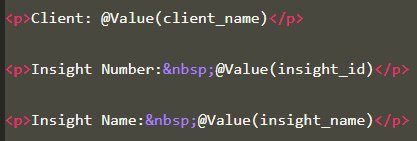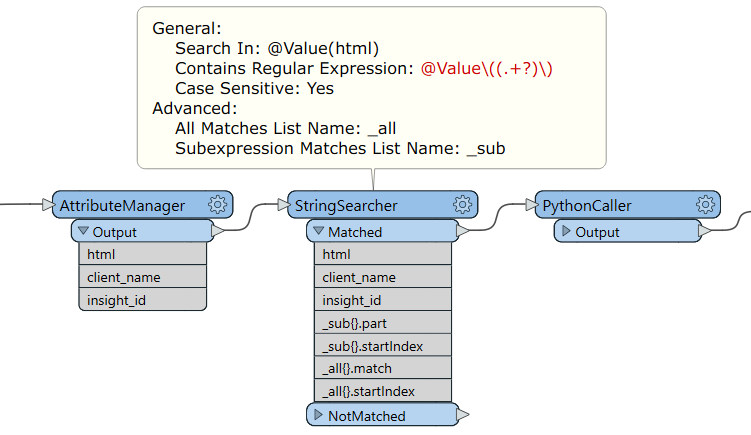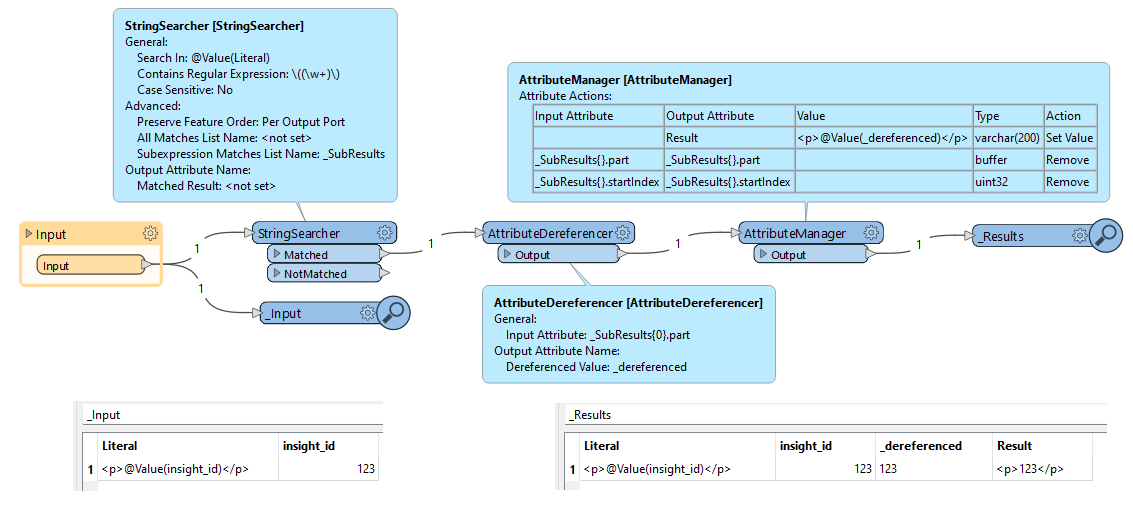Got a situation where I would like the store attribute values, @Value(attribute_name), in some HTML code which itself is stored in a SQL table. The idea is that the @Value(attribute_name) will be different for each of our clients, sending them a personalised email based on their own data.

 Currently FME reads the table in and keeps everything as plain text, @Value(attribute_name) does not get replaced with the appropiate attribute value. Is there a way to get FME to recognise the attribute names in the HTML code and replace it with the appropiate attribute values?
Currently FME reads the table in and keeps everything as plain text, @Value(attribute_name) does not get replaced with the appropiate attribute value. Is there a way to get FME to recognise the attribute names in the HTML code and replace it with the appropiate attribute values?
if I copy and paste the HTML code into atttributecreator then it works as expected, however we would like to manage all this in SQL server - saving us having to update the workbench everytime there is a change required to the HTML
Thanks







 The StringSearcher uses a regex subexpression to get the attribute name 'insight_id' in _SubResults{0}.part
The StringSearcher uses a regex subexpression to get the attribute name 'insight_id' in _SubResults{0}.part